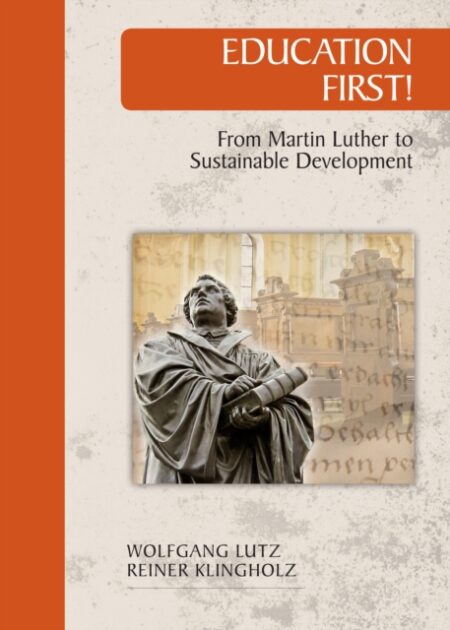-

Curriculum Inquiry in South African Higher Education
0R415,00‘At once evocative and suggestive, this exemplary book gives me hope that educators and scholars across the world will seize the opportunity to self-reflect and enlarge and enrich both their research and their practice in ways that will markedly contribute to the revitalisation of the higher learning in the twenty-first century. The urgency of the need for revitalisation of both research and practice in this domain of inquiry cannot be overstated.’ Prof Clifton Conrad ? University of Wisconsin-Madison, USA
eBook: View eBook Version
-

Dancing with Doctoral Encounters
0R240,00This book offers an exposition of the author’s professional encounters with doctoral candidates. In reflecting upon his supervision of these candidates ? individuals, each with their own ideas – the author likened these unique relationships with a dance.
-

Debating Thesis Supervision
0R215,00Debating Thesis Supervision features chapters on the topic of thesis supervision by departmental members and three academics, which together provide a rich and compelling line of argument worthy of careful study, critique and elaboration. Four articles are presented with replies by each author and a postscript. Together, they have the objective of exemplifying responsible and rigorous debate on thesis supervision on the one hand, while providing space for conceptual clarification and elaboration on the other.
-

Developing Teaching and Learning in Africa
0R375,00Developing Teaching and Learning in Africa is a collection of chapters that carry on the topical discussions on indigenous knowledges and western epistemologies. African societies still aspire towards knowledge that is liberatory, enhance critical thinking and decentre Eurocentrism. The contributors explore these decolonial debates as they navigate ways of moving towards epistemic freedom and cognitive justice.
eBook: View eBook Version
-

Developing Teaching and Learning in Africa
0R300,00Developing Teaching and Learning in Africa is a collection of chapters that carry on the topical discussions on indigenous knowledges and western epistemologies. African societies still aspire towards knowledge that is liberatory, enhance critical thinking and decentre Eurocentrism. The contributors explore these decolonial debates as they navigate ways of moving towards epistemic freedom and cognitive justice.
Print: View Print Version
-

Education First!
0R360,00This scholarly yet highly accessible volume by two renowned experts shows why education is under threat, and what should be done to counter this. The authors mobilise a fascinating array of compelling historical and current evidence which demonstrates the centrality of education to the creation of flourishing societies and show the dire consequences of its neglect. Anyone interested in education and development should read this book. – Professor Ian Goldin, University of Oxford
eBook: View eBook Version
-

Education First!
0R0,00“e;This scholarly yet highly accessible volume by two renowned experts shows why education is under threat, and what should be done to counter this. The authors mobilise a fascinating array of compelling historical and current evidence which demonstrates the centrality of education to the creation of flourishing societies and show the dire consequences of its neglect. Anyone interested in education and development should read this book.”e; – Professor Ian Goldin, University of Oxford
Print: View Print Version
-

Empowering Novice Academics for Student Success
0R430,00This book is essential for academics that enter the field of higher education and training, as it focuses on preparing teachers and trainers to respond appropriately to student success challenges. Student success is a burning issue, both globally and locally. While student achievement is determined by a combination of factors, teachers and their teaching practices do matter. Higher education teachers are expected to fulfil different roles at different times, such as planning for curriculum implementation, mentorship and coaching, facilitating learning, resource development, and student assessment. Against this background the primary purpose of Empowering novice academics for student success: Wearing different hats is building the capacity of novice teachers and trainers to play an influential role in increasing student success throughput.
Print: View Print Version
-

Empowering Novice Academics for Student Success
0R180,00The preparation for a career in education and training cuts into all three categories of knowledge: cognitive, affective, and psychomotor, and all four dimensions of competence. The implication is that effective teaching requires not only theoretical knowledge, but also practical abilities that include a range of instructional skills and techniques. The workbook therefore contains a number of activities intended to promote professional competence. The types of activities vary: they are used to stimulate thinking (promoting reflective practice), and provide guidance in the application of knowledge, as well as developing certain instructional skills. Note that the amount of activities included here is only scratching the surface; different teaching matters should receive priority in the continuous professional development (CPD) of academic staff.
Readers may perceive some of the activities as challenging, or find it difficult to relate to that, owing to being novices in higher education teaching and learning. In view of this, the reading includes comments on each activity (Activity solutions), as well as comments on the reflection activities, as a further attempt at supporting and enhancing the professional development of novice teachers.
The workbook includes reading on aspects of resource design for learning enhancement. Since this particular topic involves many technical aspects, it is presented separately from the content in the textbook, and is regarded as an enrichment opportunity.
-

Empowering Novice Academics for Student Success
0R535,00This book is essential for academics that enter the field of higher education and training, as it focuses on preparing teachers and trainers to respond appropriately to student success challenges. Student success is a burning issue, both globally and locally. While student achievement is determined by a combination of factors, teachers and their teaching practices do matter. Higher education teachers are expected to fulfil different roles at different times, such as planning for curriculum implementation, mentorship and coaching, facilitating learning, resource development, and student assessment. Against this background the primary purpose of Empowering novice academics for student success: Wearing different hats is building the capacity of novice teachers and trainers to play an influential role in increasing student success throughput.
eBook: View eBook Version
-

Empowering Novice Academics for Student Success
0R250,00The preparation for a career in education and training cuts into all three categories of knowledge: cognitive, affective, and psychomotor, and all four dimensions of competence. The implication is that effective teaching requires not only theoretical knowledge, but also practical abilities that include a range of instructional skills and techniques. The workbook therefore contains a number of activities intended to promote professional competence. The types of activities vary: they are used to stimulate thinking (promoting reflective practice), and provide guidance in the application of knowledge, as well as developing certain instructional skills. Note that the amount of activities included here is only scratching the surface; different teaching matters should receive priority in the continuous professional development (CPD) of academic staff.
Readers may perceive some of the activities as challenging, or find it difficult to relate to that, owing to being novices in higher education teaching and learning. In view of this, the reading includes comments on each activity (Activity solutions), as well as comments on the reflection activities, as a further attempt at supporting and enhancing the professional development of novice teachers.
The workbook includes reading on aspects of resource design for learning enhancement. Since this particular topic involves many technical aspects, it is presented separately from the content in the textbook, and is regarded as an enrichment opportunity.
-

Engaging Higher Education Curricula
0R290,00‘The authors aim to stimulate discussion about the nature and purposes of critical citizenship education in higher education. Rather than promoting a blueprint for change, the authors thoughtfully consider a generative research agenda for transformative higher education and focus on how this orientation in higher education plays out on the ground. This book, together with its Coda that takes the conversation beyond critical citizenship education to include responsible citizenship, provides compelling reasons and sound suggestions for a way forward.
eBook: View eBook Version


